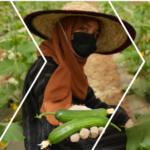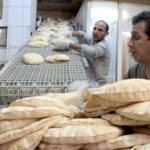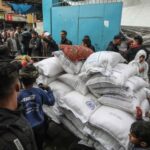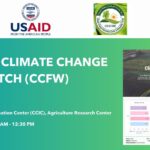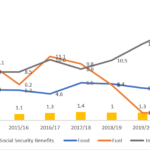The Near East and North Africa (NENA) region faces a growing number of complex, overlapping and compounding hazards that are undermining livelihoods, deepening food insecurity and slowing economic development. Increasingly frequent and severe climate extremes – such as droughts, flash floods, heatwaves – are converging with transboundary plant and animal diseases, protracted conflicts and economic volatility. These risks disproportionately impact the agricultural sector, which remains a cornerstone of rural livelihoods and food systems in the region..
Higher wheat prices push Egypt to increase price of subsidized bread for first time since 1989
Bread prices have long been a sensitive political issue in Egypt. In 1977, President Anwar Sadat cut the subsidies, triggering protests known as the “bread intifada”—ultimately forcing him to roll back his subsidy reform. In 2011, Egyptians took to the streets protesting the regime of President Hosni Mubarak with slogans calling for “bread, freedom, and social justice.” In 2017, Egyptian Ministry of Supply proposals to reduce the state-sponsored provision of bread from up to 4,000 to 500 loaves per bakery provoked large-scale protests across the country.
Famine in Gaza
Is it too late to save Gaza’s population from famine? The latest assessment of the Integrated Food Security Phase Classification (IPC) global partnership suggests this is imminent for at least half the population of 2.2 million.
Launch of Climate Change Future Watch (CCFW)
Climate Change Future Watch (CCFW) is an online tool enabling users to explore potential climate futures for specific MENA countries until 2050. This platform calculates and produces forecasts detailing the consequences of diverse climate change scenarios on the agricultural sector, along with evaluating the efficacy of policy measures to mitigate these impacts. Utilizing variables such as production, yield, and area, the tool illustrates the forthcoming influence of climate change on various food commodities.
Navigating Energy Subsidy Reforms in Times of Tight Budgets and High Inflation: Balancing Growth, Equity and Social Protection in Egypt
Energy costs are on the rise in Egypt and shortages of electricity have resulted in scheduled power outages since August 2023. Understanding the trade-offs inherent in the energy subsidy system can help policymakers to chart the best course in a difficult economic period.
- 1
- 2
- 3
- …
- 9
- Next Page »
